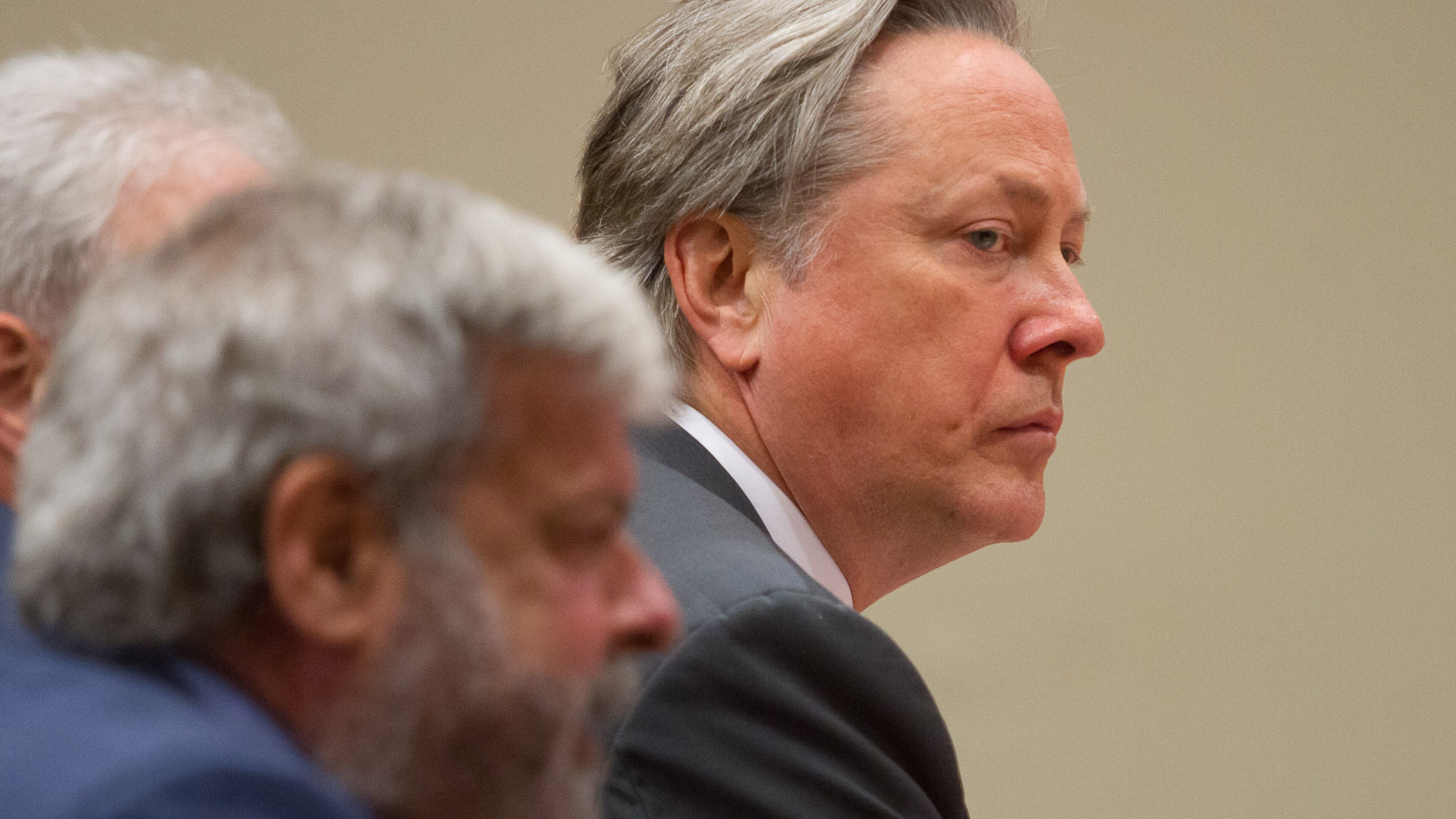Prosecutors, defense spar in advance of DeKalb cop’s murder trial

DeKalb County prosecutors say a jury should hear evidence that Afghanistan war veteran Anthony Hill was mentally ill when they weigh murder charges against the police officer who shot and killed him.
In a motion filed this week, the district attorney’s office opposed a defense request to prohibit that information in former police officer Robert “Chip” Olsen’s trial. The defense argues that Olsen didn’t know that Hill, who was 27, suffered from bipolar disorder and was off his medications when he ran, naked, toward the officer.
Olsen, 57, is scheduled to stand trial on Monday. He faces two counts of felony murder and other charges for the March 9, 2015, fatal shooting of Hill, who was unarmed. On Friday, Superior Court Judge LaTisha Dear Jackson will hear arguments from both sides during a pretrial hearing.
“Essentially, the defendant wants to erase from memory Mr. Hill’s background and what type of person he was for purposes of this trial,” prosecutors said. “The state contends this is neither legally nor morally appropriate given the facts of the case and the law.”
» BREAKDOWN PODCAST: Season 7 examines Anthony Hill case
» MORE: The latest on the Anthony Hill case and the Chip Olsen trial
On the day of the shooting, Hill, a budding music producer who’d been diagnosed with bipolar disorder, had stopped taking his medication because it made his tongue swell. Hill was acting so erratically, the manager of his apartment complex called 911. By the time Olsen arrived at the scene, Hill had stripped completely naked.

Hill, who had made statements supporting the police, began running toward Olsen’s squad car when the officer pulled up in the apartment parking lot. Olsen pulled out his handgun as he got out of the car and twice yelled at the advancing Hill to stop. When Hill kept coming, Olsen fired two shots. Hill died at the scene.
A motion recently filed by Hill’s defense team noted that Olsen didn’t know Hill was mentally ill, off his meds, supported the police or was an Afghanistan war veteran. All that is prejudicial and irrelevant, the motion said, because the jury should only focus on Hill’s actions in the time frame leading up to the shooting and Olsen’s observations of what unfolded.
But DeKalb prosecutors said the jury should hear that Hill was honorably discharged from the U.S. Air Force due to mental health concerns. He had also gone to doctors in search of treatment, the motion said.
This information is needed to let jurors know why Hill was acting in such a way, prosecutors said. “Evidence of Mr. Hill’s background will not confuse the issues for the jury or mislead the jury.”
Prosecutors also pushed back on a defense request that the jury not be allowed to hear testimony about Hill’s character.
The state plans to introduce testimony from witnesses who will say Hill had a peaceful nature. This is relevant because Olsen plans to raise a claim of self-defense and "because it makes it more probable that (Hill) was not the primary aggressor on the day of his death," prosecutors said.
As for testimony that Hill supported the police, prosecutors told Dear Jackson they want to introduce testimony from two maintenance workers, Pedro Castillo and Deni Hecheverra, at the scene of the shooting. Both will testify Hill told them, “Help me, help me,” shortly before Olsen arrived at the scene.
Hecheverra will testify that when he told Hill that the police were coming, Hill said, “I’m waiting for the police. … The police are my friends,” the motion said.



